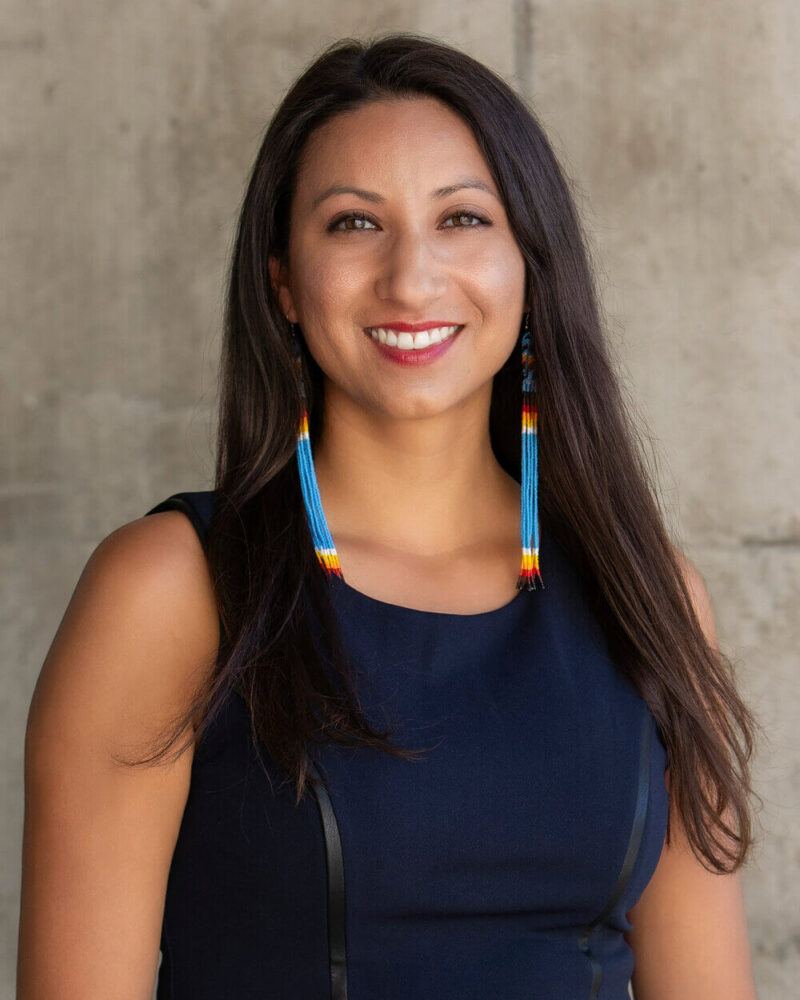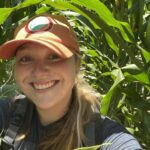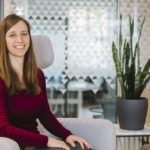
Editor’s Note: Lydia Jennings is a winner of The Story Exchange’s 2023 Women In Science Incentive Prize.
Lydia Jennings is a desert kid. She grew up in Santa Fe, New Mexico, with Pueblo people, with no rivers or water in sight – and only the earth to play with.
“It helped me see soil in a very complex way,” muses Jennings, who is a citizen of the Pascua Yaqui Tribe (Yoeme) and Huichol (Wixáritari). While people often think about the air they breathe or the water they drink, they often forget about soil, especially if they have little interaction with it. “It’s kind of like the ignored child – it’s literally beneath our feet [but] people don’t know how to see it, how to talk about it.”
That’s not the case for the PhD environmental soil scientist, who goes by the social media moniker “NativeSoilNerd.” For instance, while trail running through the Sonoran Desert, she used to observe different soil ecosystems.”Sometimes when you’re struggling to get up a hill you find different ways of distracting yourself,” she says. “And for me it was looking down at the soil and seeing how different it was.”
Jennings is now a postdoctoral fellow at Arizona State and Duke universities, focusing on the intersection of soil health and Indigenous sovereignty. Her work includes leading a project to study methane emissions from soils in rural areas that are traversed by large natural gas pipelines, as well as soil health in reclaimed mining areas of the southwest.
Ryan Emmanual, her lab mentor at Duke in Durham, North Carolina, says her background and expertise make her particularly well-suited for the job. “As an Indigenous woman herself who belongs to communities who have experienced mining impacts firsthand,” he says, “Dr Jennings has not only a deep understanding of soil science – she also has a deeply personal understanding of the stakes.”
Although Jennings grew up in New Mexico, she eventually reconnected with her tribe, who live in Arizona, after completing graduate school at the University of Arizona. The experiences have shaped her work, especially the practice of connecting with place. “Building relationships not only with the community but also the ecosystem of the Sonoran Desert is really central to who I am, and also how I am as a researcher,” she explains.
Jennings’ next project is converting a Covid-19 rapid response mobile unit into a mobile soils lab that can serve both as a laboratory and a classroom. She doesn’t know of many other mobile labs that address soil health, “so this will be a groundbreaking endeavor.”
The mobile unit will have the capacity to test for moisture, gases (such as carbon dioxide and methane), pH levels, pesticides, and the presence of microbials such as E.Coli. Jennings intends to start taking inventory of tribal lands across the country, bringing science to Indigenous communities and establishing what soil tests are needed. Empowering these groups to conduct their own research, and have a say in which soils need to be tested, is a vital step in addressing environmental injustice and a lack of understanding within the Western science community of the importance of traditional ecological knowledge.
Historically, research involving soils has been “the scene of power imbalances” between the scientific community and Indigenous people, who have been “the land stewards since time immemorial,” Jennings says. The result is that Native people have been “put in the position of passive subjects of research rather than collaborators with agency.”
Adding to the problem, “many rural communities don’t have access to cutting-edge technology because of various social and societal issues – a daunting challenge we seek to overcome,” she says.
As for Jennings, the project is an opportunity to bring her two worlds together. “In formal higher education, you start to learn all these different, highly technical jargon. And at some point you realize oh, these are the same things my grandma and grandpa taught me. They just had a different language for it.” ◼️
The story has been updated to include Jennings’ postdoc at Arizona State.



